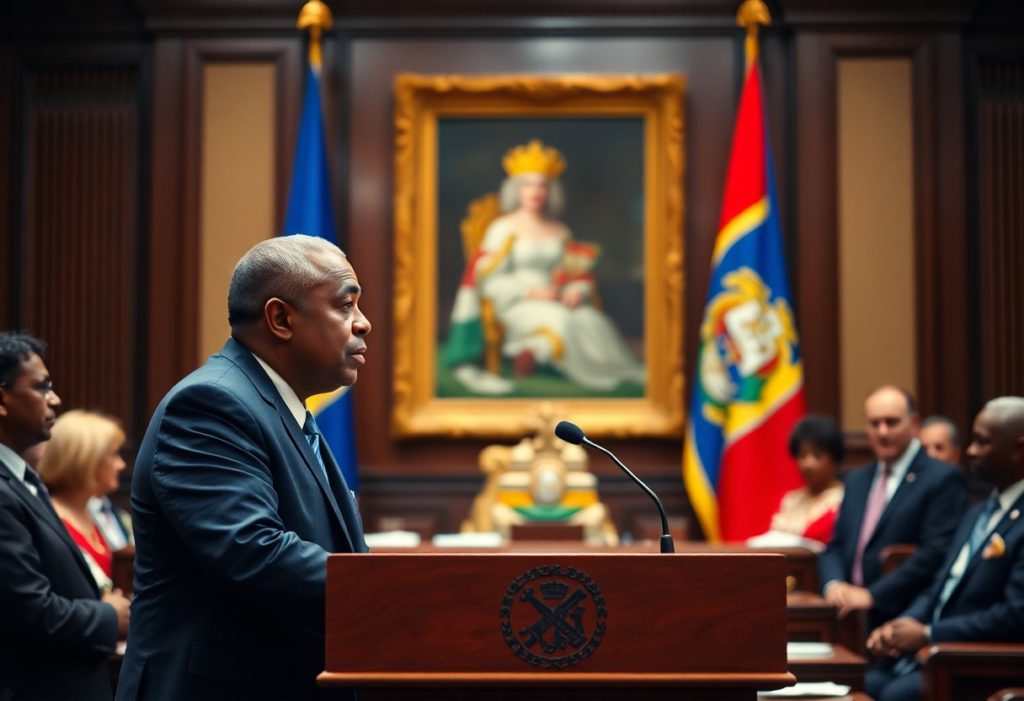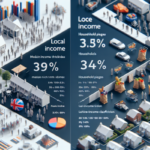Belize presents a captivating political landscape that is both multifaceted and stimulating. Operating as a parliamentary democracy, Belize adheres to a constitutional framework where elected representatives play an essential role in governance. Although Belize remains a Commonwealth realm with King Charles III serving as the official head of state, the real political authority is held by the Prime Minister and the National Assembly. This distinctive governmental structure blends traditional British parliamentary practices with modern democratic principles, creating a unique political environment that reflects the rich historical and cultural heritage of Belize.
Explore Belize’s Constitutional Framework to Understand Effective Governance
The constitutional framework in Belize serves as the foundation for its parliamentary democracy within the Commonwealth realm. This system is meticulously crafted to balance the democratic governance principles with the historical institutional structures that stem from British colonial legacy. Adopted in 1981 following Belize’s independence, the constitution outlines the fundamental political organization of the nation. It clarifies the roles and interactions among various government branches, ensuring that Belize’s governance is both representative and accountable to its citizens, thereby fostering civic engagement and political participation.
The Monarch’s Ceremonial Role as Head of State in Belize
According to the constitutional framework, the British monarch functions as the ceremonial head of state for Belize. While King Charles III serves as the nominal sovereign, he is represented locally by a Governor-General appointed on ministerial advice. This representative’s role is largely symbolic, encompassing formal governmental ceremonies and executing a range of constitutional duties that are vital to the nation’s governance. This arrangement highlights the historical ties between Belize and the British monarchy while enabling local governance mechanisms to flourish and evolve according to Belizean needs.
The Prime Minister: Central Political Leader Shaping Belize’s Future
Within Belize’s political framework, the Prime Minister embodies executive power and political leadership. This pivotal role is typically held by the leader of the majority party in the House of Representatives, who is responsible for steering national policy, managing government operations, and representing Belize on international platforms. The Prime Minister’s influence is critical in shaping the nation’s direction and political landscape, making their leadership essential for effective governance.
The constitutional provisions clearly delineate the extensive responsibilities entrusted to the Prime Minister within Belize’s governance structure. This role encompasses critical decision-making across diverse governmental domains, underscoring the necessity of effective leadership. The Prime Minister heads the Cabinet, proposes legislative initiatives, oversees national economic strategies, and acts as the principal political spokesperson for the country. Their authority, while significant, is carefully moderated by parliamentary oversight and constitutional limitations to ensure a balanced governance approach.
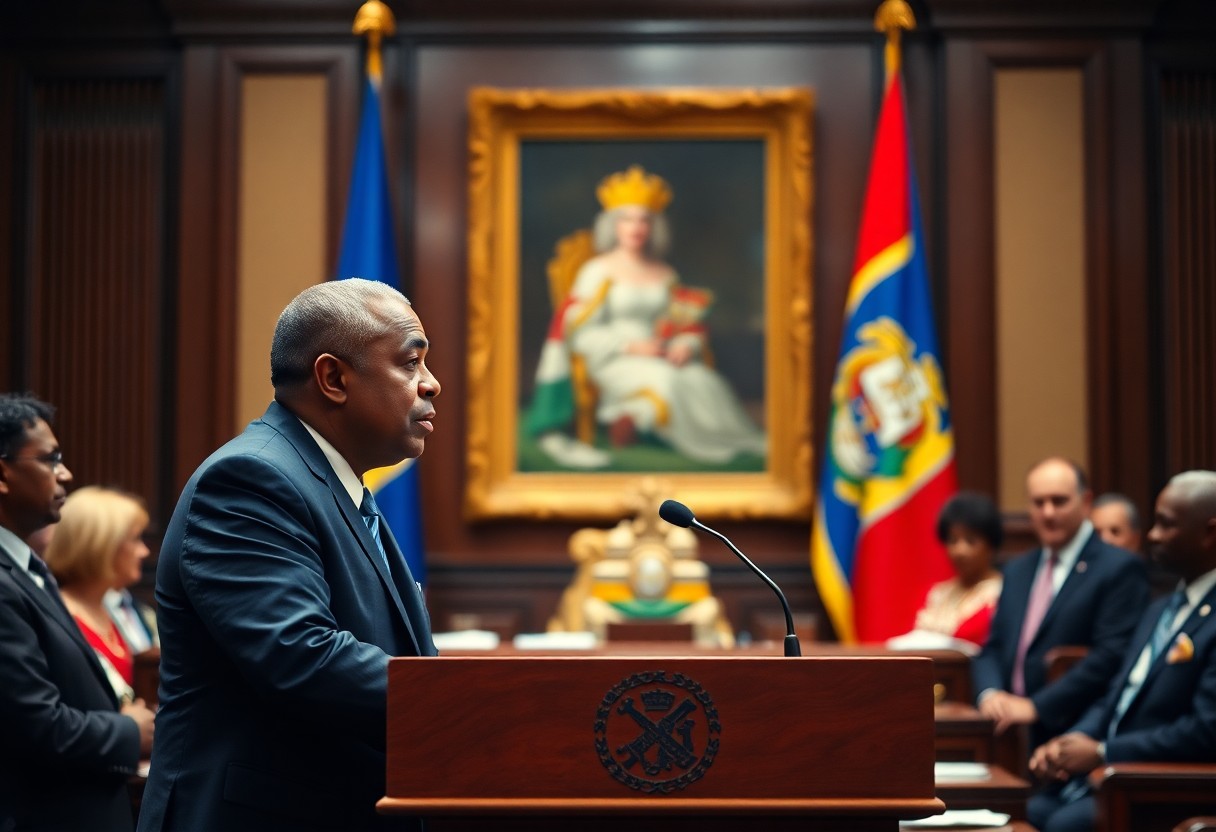
Assessing the Prime Minister’s Impact on Belize’s Governance
The Prime Minister of Belize serves not only as the head of government but also wields considerable political influence and authority across various aspects of governance. As the leader of the majority party in parliament, they play a crucial role in steering national policy, representing Belize on the international stage, and managing the executive branch of government. Their position is indispensable for ensuring effective governance and promoting national decision-making processes that align with the public’s interests.
Understanding the Extensive Powers Granted to the Prime Minister
To fully appreciate the political structure of Belize, it’s imperative to recognize that the Prime Minister wields extensive constitutional powers that profoundly impact the nation’s political landscape. Their authority allows them to appoint cabinet ministers, advocate for new legislation, direct government policy, and represent Belize in various international forums. This extensive influence cements the Prime Minister’s role as a pivotal figure in Belize’s governance, enabling them to shape the nation’s future in alignment with the needs and aspirations of its citizens.
The Electoral Process for Choosing the Prime Minister
Typically, ministerial candidates are selected through party-based electoral mechanisms. Potential Prime Ministers usually emerge as leaders of their respective political parties, successfully securing parliamentary seats during elections. Their selection hinges on their party’s performance in national elections, reflecting the core democratic principles that guide Belize’s governmental framework and political landscape.
The electoral process in Belize encapsulates complex political dynamics essential for comprehending its governance. Candidates must navigate various challenges, including local constituency elections, party nominations, and national voting trends. Generally, the leader of the party that secures the most parliamentary seats ascends to the role of Prime Minister, emphasizing the direct correlation between electoral success and governmental leadership in Belize’s democratic system.
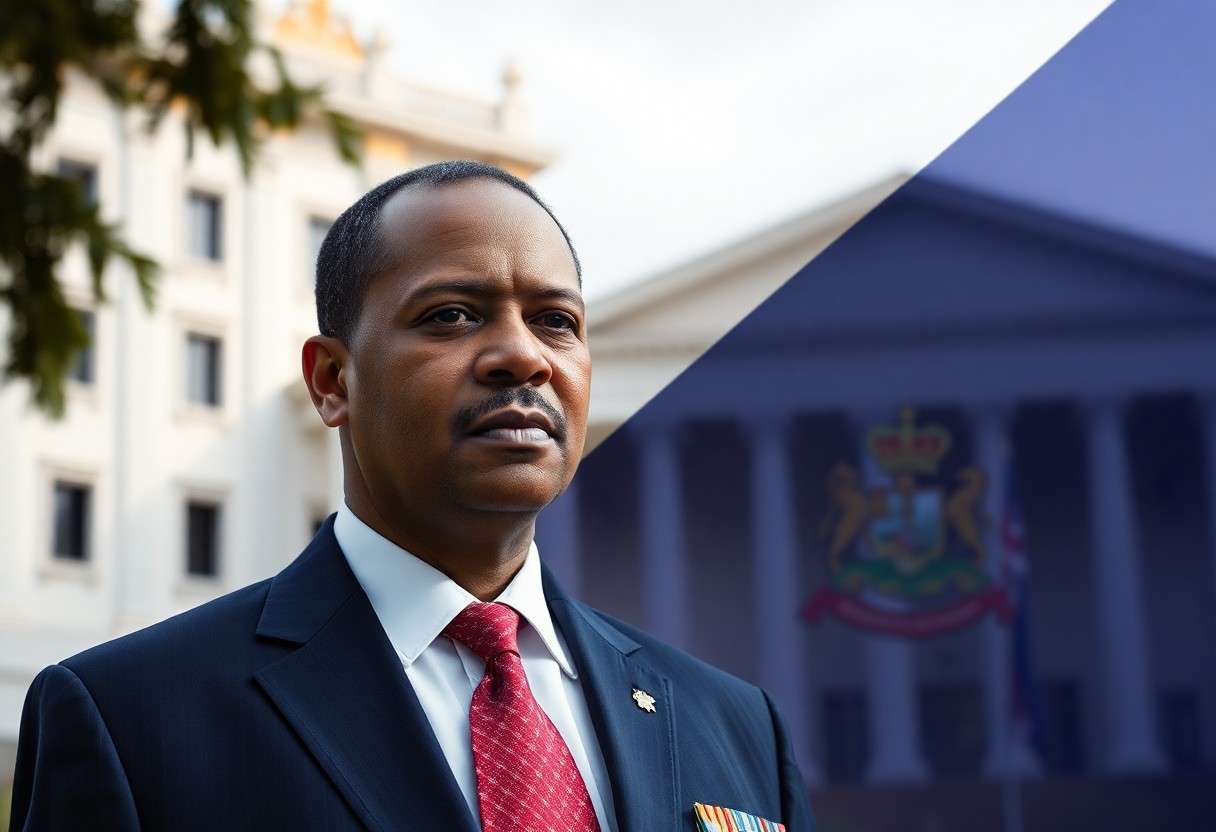
Unpacking the Bicameral Parliamentary Structure of Belize
Belize operates under a parliamentary democratic framework that adheres to a Westminster-style governance model, which has its roots in British colonial traditions. The bicameral legislature consists of two chambers: the House of Representatives and the Senate. Together, these bodies form the principal legislative assembly responsible for drafting and enacting national laws that govern Belize and its citizens.
Understanding the Significant Role of the House of Representatives
The House of Representatives plays a vital role in democratic representation, comprising 31 elected members who are chosen through constituency-based elections. These representatives are directly elected by the citizens, serving as the primary democratic voice in Belize’s political framework. Each member advocates for a specific geographic region and its local interests, ensuring that the diverse needs of the populace are effectively represented within the legislative process.
The Senate: Responsibilities, Structure, and Influence
In contrast, the Senate serves as an appointed upper chamber, comprising 12 nominated members. Unlike the House, these senators are not directly elected; instead, they are appointed by the Governor-General based on recommendations from various political and social sectors. This system allows for a broader perspective on national legislation, enriching the legislative process with diverse insights and expertise.
This legislative body holds a critical advisory role in Belize’s governance. Senators are typically selected to represent a wide array of interests, including business, labor, religious organizations, and civil society. Their primary responsibility involves reviewing and potentially amending legislation proposed by the House of Representatives, thereby ensuring a comprehensive and balanced approach to lawmaking that considers multiple societal perspectives and needs.
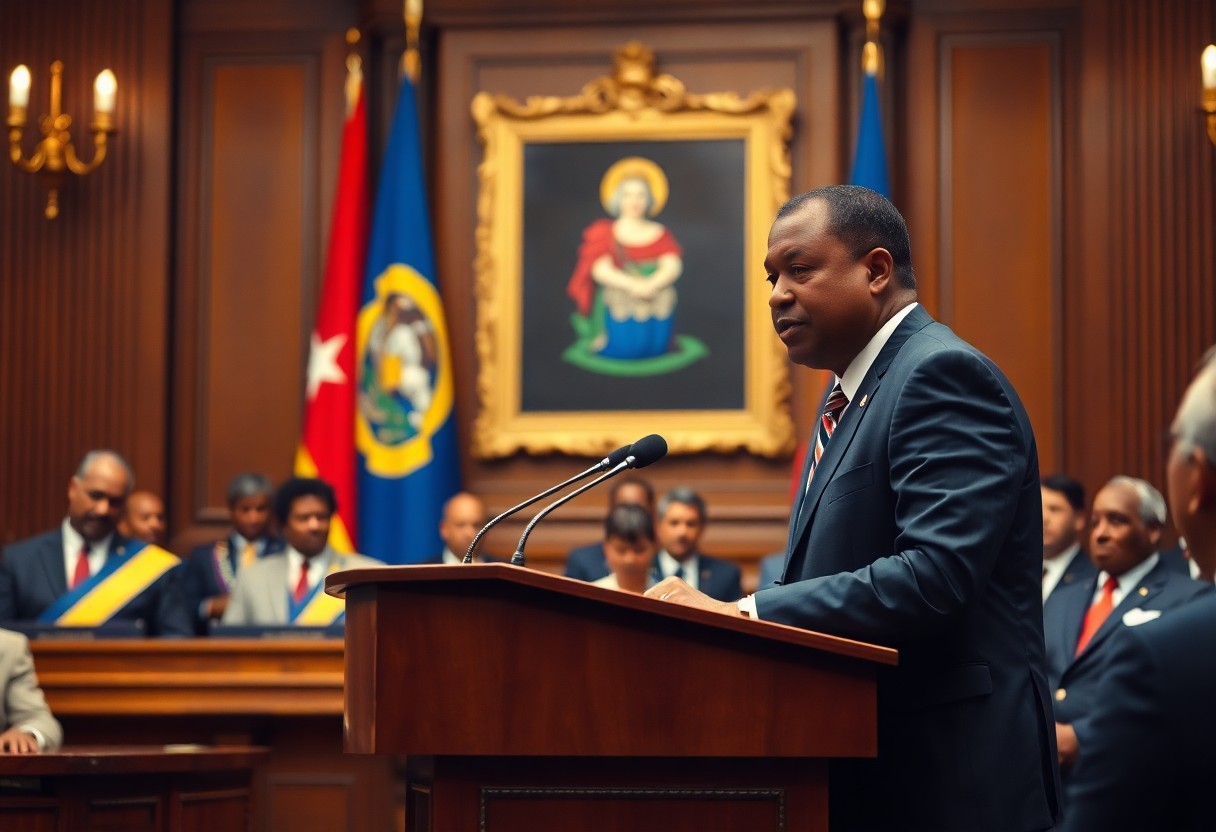
Dispelling Common Misconceptions about Belize’s Political System
Despite common perceptions, Belize’s governmental structure is significantly more complex than many might assume. Widespread misunderstandings about political leadership lead to confusion surrounding the true nature of governance in the country. The reality of Belize’s political system diverges substantially from surface-level perceptions, revealing intricate layers of power and governance that merit deeper exploration for a comprehensive understanding.
Clarifying the Key Differences Between “President” and “Prime Minister”
Given the prevalence of presidential systems in many countries, there is a tendency to erroneously assume that Belize operates under a similar model. It is crucial to recognize that Belize functions under a parliamentary system, where the Prime Minister assumes the role of head of government, not a president. This distinction is vital for grasping the political leadership structure, as the Prime Minister is elected from the majority party in parliament, contrasting with a directly elected presidential figure.
Diving into the Complex Political System of Belize
A deeper examination of Belize’s political framework uncovers complex interactions among constitutional monarchy, parliamentary democracy, and local governance. While the British monarch remains the official head of state, the day-to-day governance is managed by elected officials through a representative democratic system, emphasizing local accountability and community engagement.
Common misconceptions about Belize’s political structure often overlook the intricate balance of power between local institutions. It may surprise you to learn that the system comprises multiple governance levels, including a national parliament, local councils, and the influence of the British monarchy via a Governor-General. Understanding this nuanced political landscape requires a deeper comprehension beyond simplistic categorizations of governmental styles and systems.
Understanding the Dynamics of Governance and Political Relationships in Belize
It’s essential to acknowledge that Belize operates as a parliamentary democracy within a constitutional monarchy, where the British monarch serves as the ceremonial head of state. Your understanding of the political landscape is significantly shaped by the Prime Minister’s considerable power, who leads the government and represents the majority party in the National Assembly. While the political system appears stable, potential tensions between political parties may create intricate governance challenges, impacting national decision-making processes. Recognizing these dynamics will enhance your appreciation of the delicate balance of power in this Central American nation, where historical influences and democratic processes continuously mold the political trajectory.
Tracing the Historical Evolution of Belize’s Political Landscape
The political landscape of Belize has emerged from a rich and intricate colonial history, where British colonial rule significantly shaped its governance structure. Exploring this political evolution reveals a transition from being a British Honduras colony to an independent state in 1981. This transformative period marks a critical juncture in understanding Belize’s governmental framework. Your exploration will uncover how British parliamentary traditions have fundamentally influenced Belize’s current political system, culminating in a unique blend of Westminster-style democracy and localized governance that continues to define the country’s political identity today.
Essential Insights on Belize’s Political Structure and Governance
In summary, Belize functions as a parliamentary democracy within the Commonwealth realm, where the Prime Minister holds primary executive power. While Queen Elizabeth II historically served as the head of state, King Charles III currently fulfills a largely ceremonial role in this governance structure. Understanding Belize’s governance involves recognizing the National Assembly, which consists of elected representatives responsible for drafting and enacting legislation. The Prime Minister, typically the leader of the majority party, effectively governs the country, making crucial decisions that shape Belize’s political landscape. This system successfully balances democratic representation with the tenets of constitutional monarchy, reflecting a commitment to both tradition and modernization.
Frequently Asked Questions about Belize’s Political System
What are the Fundamental Functions of Belize’s Political System?
Belize operates as a parliamentary democracy within the Commonwealth realm, with the Prime Minister serving as the head of government who leads the executive branch. The Parliament consists of two chambers: the House of Representatives, which comprises elected members, and the Senate, which consists of appointed members. While Queen Elizabeth II historically served as the head of state, King Charles III currently fulfills this ceremonial role, represented locally by a Governor-General.
Who Currently Leads Belize, and How Are National Leaders Selected?
Prime Minister Johnny Briceño leads Belize and heads the People’s United Party (PUP). National leaders are chosen through democratic elections, where citizens cast votes for representatives in the House of Representatives. The political party that secures the majority of seats typically forms the government, and its leader becomes the Prime Minister. Elections are conducted every five years, ensuring consistent democratic participation and engagement.
What Legislative Powers Are Held by the Belizean Parliament?
The Belizean Parliament possesses significant legislative authority. The House of Representatives is responsible for drafting, debating, and passing laws that influence national policy and governance. Members propose legislation, approve national budgets, and exercise oversight over government operations. The Senate reviews proposed laws and can recommend modifications, ensuring that both chambers play vital roles in upholding democratic processes and representing the interests of Belizean citizens effectively.
The Article Who Really Runs Belize? The Prime Minister, Parliament, and Monarchy Explained appeared first on Belize Travel Guide
The Article Who Runs Belize? Insights on the Prime Minister and Government Was Found On https://limitsofstrategy.com
